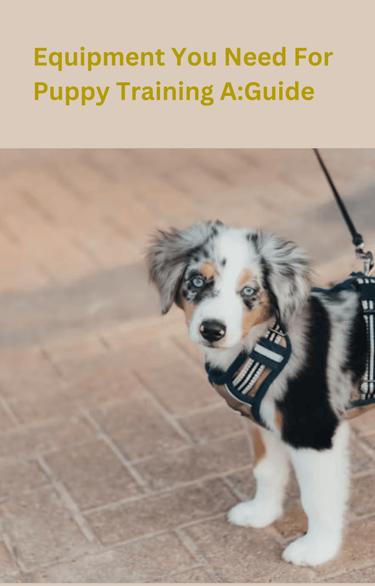Mastering Socialization Skills: A Guide to Socializing Your Puppy with Dogs and People
Socialization is a fundamental aspect of raising a well-adjusted puppy.


Understanding the Importance of Socialization
Socialization is a fundamental aspect of raising a well-adjusted puppy. During the critical period of development, which typically occurs between three and fourteen weeks of age, puppies are particularly receptive to new experiences.
This phase is vital for the formation of their future behavior patterns. Proper socialization can significantly influence how a puppy interacts with people, other dogs, and even newer environments as they grow.
By exposing them to a variety of stimuli during this time, pet owners can help their puppies develop positive associations with the world around them, leading to increased confidence and reduced anxiety later in life.
Engaging puppies in socialization activities can foster desirable behaviors such as friendliness, curiosity, and adaptability. These interactions promote an understanding of proper canine etiquette and help prevent fear-based reactions that may lead to aggression in adulthood.
Without adequate socialization, puppies can develop a range of behavioral issues when faced with the unfamiliar, including excessive barking, fearfulness, or even becoming overly aggressive.
Thus, socialization is not merely beneficial; it is essential for cultivating a balanced character in our canine companions.
Moreover, positive social experiences enhance a puppy's emotional well-being. Puppies that are well-socialized are generally more relaxed and comfortable in different situations, which translates into a well-rounded adult dog capable of handling life's challenges with poise.
The experiences encountered during this early period play a crucial role in shaping their perspectives on daily encounters. Consequently, initiating a structured and varied socialization regimen provides a robust foundation for your puppy’s future interactions.
By prioritizing socialization, dog owners are investing in a healthier, happier, and more adaptable companion.
Best Practices for Socializing Your Puppy
Socializing a puppy is a crucial aspect of its development, forming the foundation for a well-adjusted adult dog.
Effective methods for socialization include utilizing positive reinforcement techniques, which encourage desired behaviors and create a positive association with new experiences.
When introducing your puppy to new environments, ensure that these introductions are controlled; this minimizes overwhelming feelings while developing your puppy's confidence.
Puppy classes are highly recommended, as they provide a structured environment for socialization with both dogs and people. In these classes, puppies can learn basic commands while engaging in supervised interactions.
Additionally, these classes often serve as a space for puppy owners to share insights and experiences, supporting the overall socialization process. Participating in these classes can reinforce positive behaviors through group dynamics.
Supervised playdates with other vaccinated dogs also offer invaluable social exposure. Start with calm and friendly dogs that are well-socialized.
Monitoring interaction is essential; observe your puppy’s body language for signs of stress or discomfort, such as tucked tails or excessive barking.
Should your puppy show signs of anxiety, gently redirect their attention or provide them with a safe space to retreat to if needed. This practice helps in building resilience while ensuring your puppy feels secure.
To effectively expand your puppy's social experiences, gradually increase the variety and complexity of environments.
Begin with quiet, familiar places before introducing your puppy to busier, more stimulating settings.
Exposure to different people, sounds, and experiences will help them grow accustomed to the unpredictability of everyday life.
Remember, the goal is to create positive associations during all interactions, helping your puppy build a confident and friendly demeanor as it matures.
Socialization Activities to Try
To foster effective socialization skills in your puppy, engaging in a variety of activities is essential.
These experiences will not only aid in their ability to interact with other dogs and people but also help them adapt to various environments. One of the best ways to achieve this is by visiting dog parks.
Dog parks provide a controlled space where your puppy can interact with other canines. Remember to choose times when the park is not overly crowded to ensure a positive experience.
Community events are excellent opportunities for socialization as well. Participating in local pet fairs, parades, or charity walks exposes your puppy to diverse sights, sounds, and stimuli.
Engaging in such activities allows them to meet different people and dogs in a relaxed atmosphere.
Furthermore, regular outings to pet-friendly locations, such as cafes or stores, can significantly contribute to their exposure, allowing them to experience new environments gradually.
Another fun yet impactful activity is taking your puppy on car rides. These excursions can help acclimatize them to various locations and the sensation of travel.
Visiting pet supply stores is particularly beneficial because these locations often feature varied scents, sounds, and people, making it an enriching experience for your puppy. Additionally, consider enrolling in group training sessions.
This interaction not only teaches your puppy basic obedience but also offers a chance to socialize with both people and other dogs in a structured environment.
Encouraging creativity in finding new environments is vital for positive socialization opportunities. Look for dog-friendly hiking trails or beach outings, where your puppy can explore different terrains while learning to socialize.
Ultimately, the goal is to create a diverse range of encounters that instills confidence and social skills in your puppy, preparing them for a well-adjusted life.
Common Challenges and How to Overcome Them
The process of socializing a puppy is crucial for their development, yet it often presents several challenges that owners must navigate. One common issue is fearfulness, where puppies may exhibit avoidance behaviors or become anxious when exposed to new environments, people, or other dogs.
To address this challenge, owners should consider gradual desensitization techniques. This involves exposing the puppy to different stimuli in a controlled manner, starting with less intimidating situations and gradually increasing exposure as the puppy becomes more comfortable.
Positive reinforcement, such as treats and praise, can help make these experiences enjoyable for the puppy.
Another challenge that may arise is aggression towards other dogs, characterized by growling, barking, or lunging. This behavior can stem from fear, territorial instincts, or a lack of proper socialization.
To mitigate aggressive tendencies, it is vital to seek professional trainers' assistance who can provide valuable insights and methods suited for the specific situation.
Establishing a consistent routine for introductions to other dogs, using leashes and muzzles when necessary, and rewarding calm behaviors will contribute to a more positive interaction.
Additionally, some puppies might display overly shy behavior around people, leading to avoidance or the inability to engage positively. Encouraging social interactions in low-pressure environments is essential.
Owners should invite friends over to meet the puppy and allow them to approach at the puppy’s pace. Providing treats during these interactions can help the puppy associate people with positive outcomes.
Ultimately, consistency is key in training and socializing a puppy.
Establishing regular schedules for socialization outings, employing patience, and using positive reinforcement will create a supportive environment for the puppy.
Various resources, including online videos, books, and local training classes, are available to support puppy owners on their journey to cultivating effective socialization skills.











